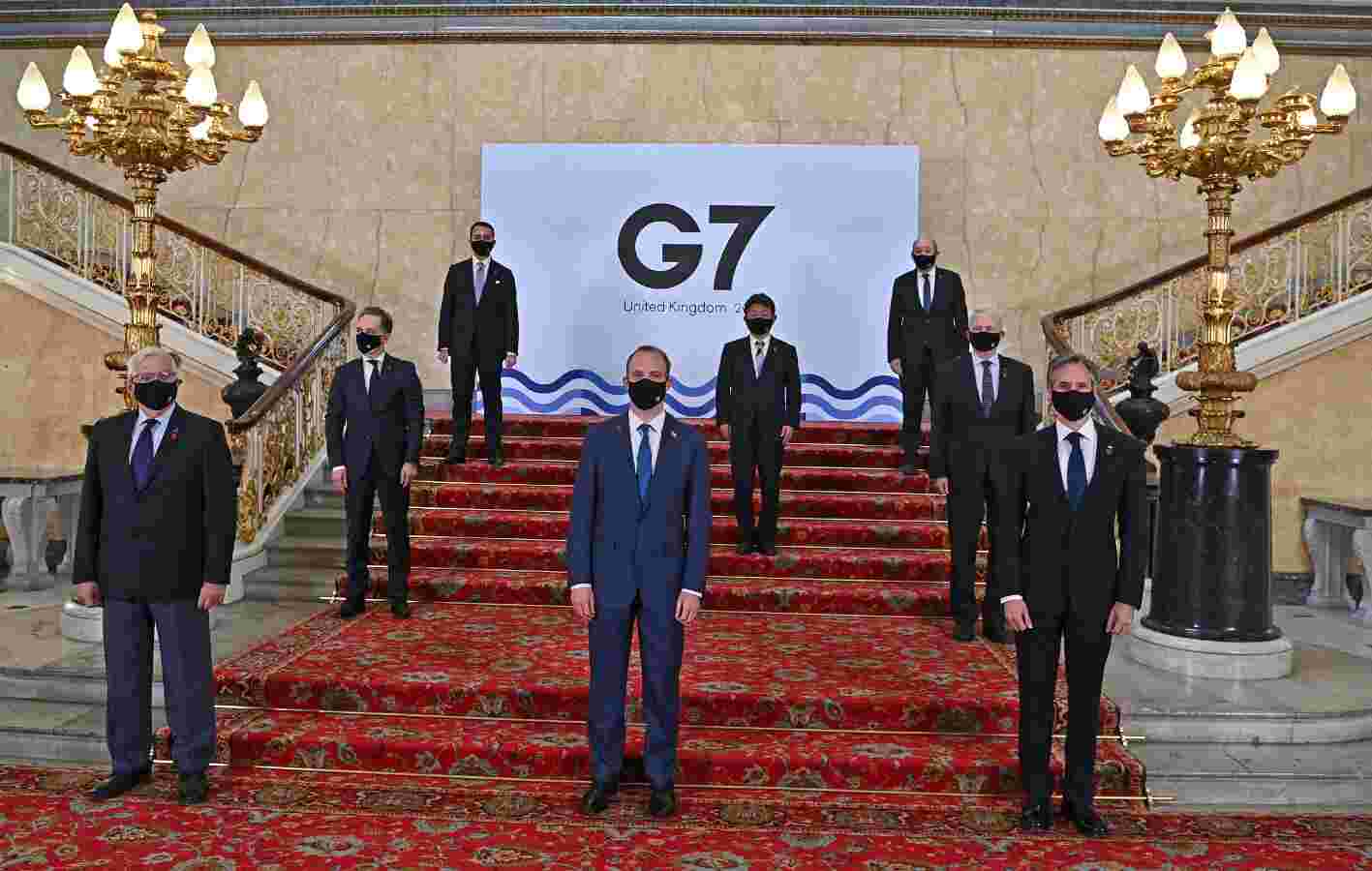An emerging order?
The UK’s invitation to India, Australia and South Korea for the in-person G7 Summit scheduled next month reflects the centrality of the Indo-Pacific

In about a month's time, leaders of the most industrialised countries in the world known as G7 (Group of 7) will hold a summit meeting in the UK, an event that is expected to herald the return to in-person exchange of ideas and demonstrate confidence as the world struggles to break free from the COVID-19 pandemic.
With countries across the globe forced to impose lockdowns over the last year, the 2020 edition of the summit was cancelled. From June 11-13, leaders from the United Kingdom, Canada, France, Italy, Germany, Japan and the United States will meet at Cornwall in the UK and will be joined by leaders from Australia, India and South Korea.
Considering the prevailing COVID-19 situation in the country, Prime Minister Narendra Modi has decided against travelling in person. The invitation to the three countries reflects the altering geo-strategic landscape amid the UK's inclination towards Indo-Pacific and the attitude towards China.
Ahead of the summit, Foreign Ministers of G7 countries plus the European Union along with counterparts from three invitees met during the first week of May to finetune issues of concern for the grouping in the backdrop of the global pandemic and climate change — two of the most difficult challenges the world continues to grapple with.
The decision of the United Kingdom to invite India should be viewed from the prism of the country seeking to readjust its relationships with the world in the post-Brexit phase. The UK is fast-tracking expansion in its economic and trade ties with several countries. In addition, the UK envisages New Delhi as a major power in the continent that can stand up to the rising might of China.
The concluding statement of the May 5 Foreign Ministers' meet takes note of developments in many countries. In a specific reference, the statement encourages China to constructively take part in the rules-based international system. "It is in all of our interests, including that of China, to take actions that address global challenges including climate change and biodiversity loss, to promote economic recovery from COVID-19 and to support the fight against the current pandemic and prevent future ones. We look for opportunities to work with China to promote regional and global peace, security and prosperity".
In the same text, while expressing concern about human rights violations in Xinjiang and Tibet, the Ministers reiterated an earlier statement on Beijing's decision to "fundamentally erode democratic elements of the electoral system in Hong Kong". Rubbing in, the statement seeks meaningful participation of Taiwan in World Health Organisation forums and World Health Assembly to take advantage of the experience of all partners including Taiwan's successful tackling of the pandemic.
Last July, the UK banned China's telecom giant Huawei from taking part in the 5G network development. Recently, India too kept out the network as it invited domestic telecom service providers for trials. Interestingly, among the countries that have the technology include South Korea and European giants.
As for India, the country has been a participant in both G7 and G8 — the grouping that existed before the exclusion of Russia in 2014 following the developments in Crimea. India took part in the 2019 event and was invited by the host President Donald Trump for the 2020 edition that did not take place.
One of the focus areas by G7 is work to build a resilient global supply chain as economies seek ways to rebuild after a downturn as the world remains in the grip of the pandemic. India's Atmanirbhar campaign aims, among other things, to make the country a major manufacturing base and a reliable partner in the supply chain.
While dealing with the pandemic remains a priority, the focus of all these countries is to work towards mitigating the effects of climate change. Now with the United States re-joining the global efforts, the world looks to India that promised to achieve its goals to reduce carbon emission in a decade.
In the geostrategic context, while committing to exploring concrete cooperation the statement underscores the centrality of ASEAN and the ASEAN outlook on Indo-Pacific.
The position matches with India's own recognition of the centrality of ASEAN, a viewpoint articulated by PM Modi at the Shangrila Dialogue in 2018. New Delhi also underscored the importance of a free and open Indo-Pacific that is inclusive and rules-based.
New Delhi envisages the Indo-Pacific construct as a geo-economic construct with trade and investment being the driving force, as against some western democracies, those inclined towards increased military engagement.
The G7 plus European Union statement on Indo-Pacific should bring clarity on the issue as not all countries in the continent share similar enthusiasm for the construct.
The meeting of the G7 also comes in the backdrop of the British Prime Minister Boris Johnson suggesting last July about a new grouping of Democratic-10 that includes G7 countries, Australia, India and South Korea, all of which, will be participating at Cornwall.
Views expressed are personal



